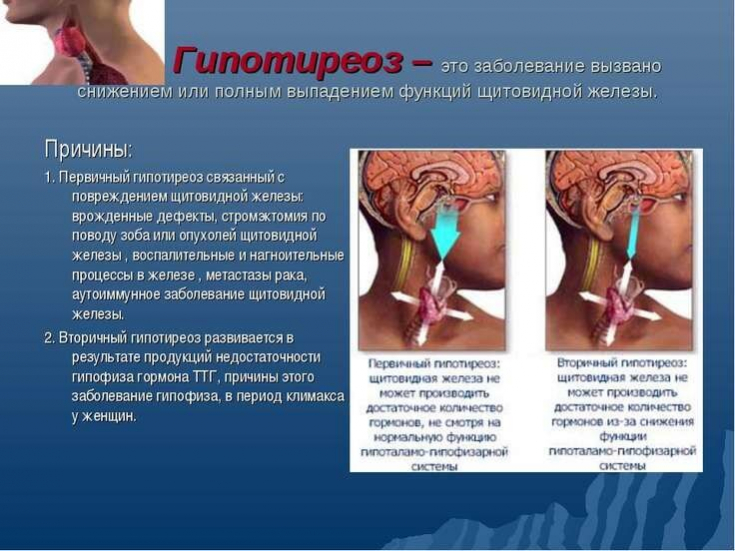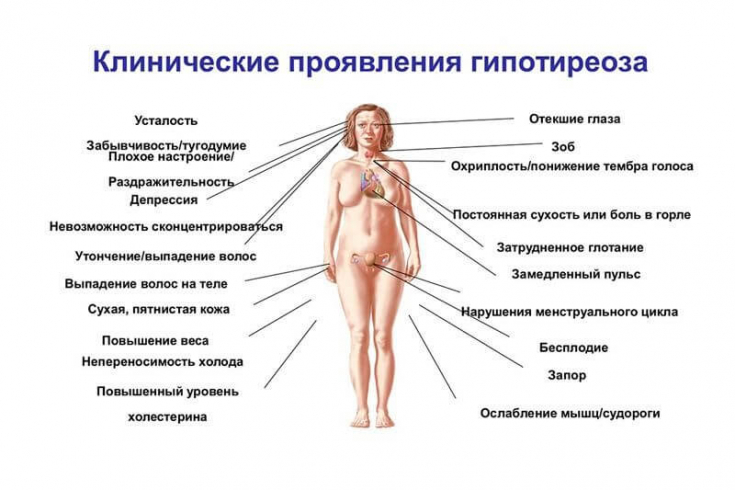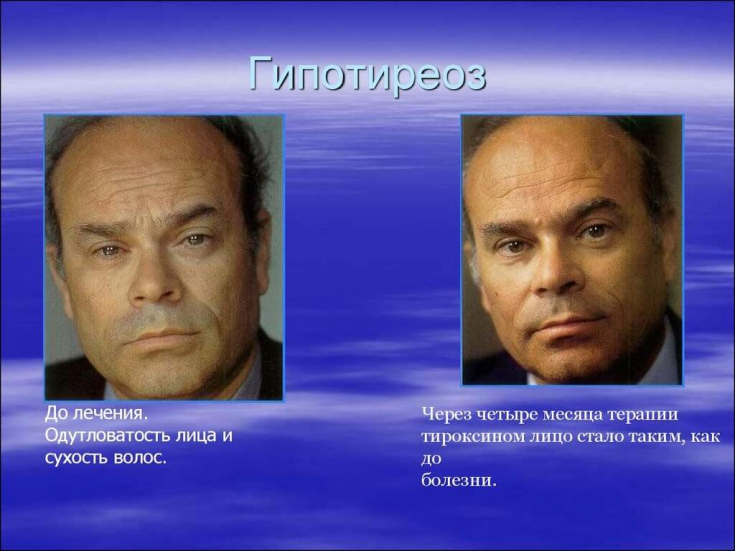Hypothyroidism occupies one of the leading places in the structure of endocrine diseases.
Hypothyroidism is caused by a decrease or complete absence of thyroid function, which is accompanied by a violation of the production of thyroid hormones and, accordingly, requires the appointment of replacement therapy.
The prevalence of hypothyroidism in the population is constantly increasing.
Find out in the article on estet-portal.com what complications are dangerous for irrational hormone replacement therapy in case of hypothyroidism.
- Prevalence of various forms of hypothyroidism in the population
- Danger of replacement therapy in hypothyroidism
- Methods and results of the study of patients with hypothyroidismm
Prevalence of various forms of hypothyroidism among the population
In adults, the frequency of hypothyroidism among women is from 1.4 to 2%, among men − 0.2%.
The highest prevalence of hypothyroidism is noted in the age group over 60 years.
Follow us on Instagram!
Thus, among those examined during the study (without a history of thyroid disease), the proportion of patients with hypothyroidism reaches 6% among women and 2.5% − in men.
The incidence of congenital hypothyroidism in children is 1:3000-4000.
Causes of pain in the thyroid gland
In the absence of adequate treatment in the case of hypothyroidism, the risk of developing a complication such as artificial (medicated / exogenous) thyrotoxicosis syndrome.
This syndrome is caused by excessive administration of thyroid hormone preparations − thyroxine (T4), triiodothyronine a (T3) − as replacement treatment for hypothyroidism.

Dangers of replacement therapy in hypothyroidism
The medical and social significance of hypothyroidism is determined not only by its prevalence and the tendency to further increase in the number of patients, but also by the losses that hypothyroidism inflicts on the patient as a chronic disease.
First of all, this concerns pathology of the cardiovascular and nervous systems.
What is the danger of subacute thyroiditis
Atrial fibrillation (AF) is the most common arrhythmia associated with thyrotoxicosis.
The basis for the formation of arrhythmia in hyperfunction of the thyroid gland is the simultaneous existence of focal impulsation and circular movements of the excitation wave − mechanism re-entry.
Successful treatment of AF in patients with thyrotoxicosis is possible only when euthyroidism.
In most cases, when thyrotoxicosis is relieved, spontaneous restoration of sinus rhythm.
The chances of sinus rhythm recovery are lower in elderly patients with concomitant organic myocardial pathology or long-term AF.

According to the results of a large population-based study conducted by American scientists at the University of Michigan (Metabolism, Endocrinology and Diabetes Clinic, University of Michigan), USA, low levels of thyroid-stimulating hormone (TSH) as a result of an overdose of hormonal drugs for the treatment of hypothyroidism are associated with a statistically significant increased risk of AF and acute cerebrovascular accident (ONMC).
Despite the control of cardiovascular risk factors such as smoking, arterial hypertension, etc., a decrease in serum TSH levels during hypothyroidism replacement therapy has been associated with the development of both AF and stroke.
Methods and results of the study of patients with hypothyroidism
The study analyzed data from 643,054 patients who received thyroid hormone replacement therapy for hypothyroidism over a period of 13 years.
Treatment included monotherapy with hormones T4 or combination of T4 and T3.
Atrial fibrillation (AF): at a median follow-up of 59 months, AF was reported in 67,772 (10.5%) patients.
Specifically, for a TSH level <0.1 mIU/L, the odds ratio (OR) for developing AF was 1.16 compared to the normal (euthyroid) TSH ranges (0.5-5.5 mIU/L) .
However, for levels of 0.1-0.5 mIU/L (OR 0.94), the risk of AF was not increased.
Clinical studies of hypothyroidism
Acute cerebrovascular accident (ACV): 16878 (2.4%) cases of stroke were registered among 692,537 patients in the study of stroke cases.
Underdose of hypothyroidism drugs was also associated with a high risk: in patients with TSH levels >5.5 mIU/L, the odds ratio for CVA was 1.33 (95% CI 1.27-1.39) compared with patients with normal TSH levels.
As expected, risk factors such as older age and hypertension associated with AF (particularly a history of AF) were statistically associated with the risk of CVA (OR 1.55).

Low TSH was independently associated with the development of stroke in patients receiving replacement therapy thyroid hormones for hypothyroidism, even when taking into account the presence of a history of AF, which is considered a common mechanism leading to stroke in thyrotoxicosis.
This suggests that there may be additional mechanisms that lead to an increased risk of CVA in patients with an overdose of thyroid replacement hormones, and low TSH is a modifying factor.
The Secret to Longevity: Controlling Thyroid Hormones
Scientists emphasize that hormone replacement therapy should be prescribed with caution and the general condition of patients should be carefully monitored.
Return to original dose if side effects occur:
- tachycardia;
- arrhythmia;
- increased mental excitability;
- tremor of limbs.







Add a comment